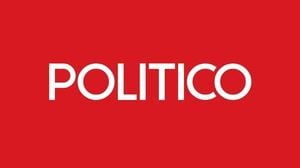The idea of creating a Gold Board in Ghana is gaining momentum as the country looks to centralize the export of gold produced in its small-scale mining sector. Sammy Gyamfi, the Acting Managing Director of the Precious Minerals Marketing Company (PMMC), emphasized the importance of this initiative during an appearance on Joy FM’s Super Morning Show on March 22, 2025, providing insights on how this proposed board will operate.
Under the new system, the Gold Board will be the sole entity empowered to manage and oversee the export of all gold sourced from small-scale miners across the country. During the program, Gyamfi articulated that while licensed agents—including buyers and aggregators—will still have the capability to purchase gold from small-scale miners, they will not hold the authority to directly export the gold themselves. "Instead, they will act as intermediaries under the Gold Board’s policy, which will ensure that all gold from small-scale miners is purchased and managed by the Board," he clarified.
The rationale behind this centralization is multifaceted. Gyamfi outlined that it serves to enhance regulation and monitoring of gold exports, thus ensuring compliance and better tracking of resources. "The Gold Board will be the central agency that handles the purchase and export of gold," Gyamfi stated, reinforcing that licensed buyers can apply to buy gold on behalf of the Board but are restricted from exporting it independently.
A key aspect of this new policy is the financial support that the Gold Board will extend to licensed agents. Gyamfi highlighted the Board's intention to provide agents with the necessary capital to facilitate gold purchases from local miners. "These agents can buy gold for the Gold Board, but the actual export will be handled by the Board itself. This ensures that the gold is exported in a controlled manner, and we can effectively track the foreign exchange," he elaborated.
Furthermore, the framework under which transactions will occur includes a meticulous payment system. If any licensed agent establishes an off-taker in an international market, like India, Dubai, or Europe, the Gold Board will channel these transactions. Specifically, the payment will be converted into its cedi equivalent before permitting the agent to purchase the gold. The Board will retain ultimate responsibility for exporting it to the intended foreign market. Gyamfi underscored this process by saying, "If an agent has an off-taker in an international market such as India, Dubai, or Europe, the payment will be converted into the cedi equivalent before allowing the agent to purchase the gold."
This thorough oversight is envisioned to enhance the monitoring of foreign exchange flows, an area that has seen previous challenges regarding retention and repatriation. Gyamfi articulated how addressing these past glitches is part of the Gold Board's broader mission, saying, "Centralising the export process through the Gold Board will help address these issues." His statements signal a transformative shift in Ghana's gold export environment, aimed at instilling robust financial practices while safeguarding the interests of the nation and its small-scale miners.
The implications of establishing this Gold Board could be significant for the local economy, potentially driving improvements in the mining sector's efficiency through tighter controls and a clearer structure. As discussions move forward, the successful implementation of the board could reshape how gold trading operates in Ghana, reflecting a commitment to enhancing the formalities surrounding this critical resource.





